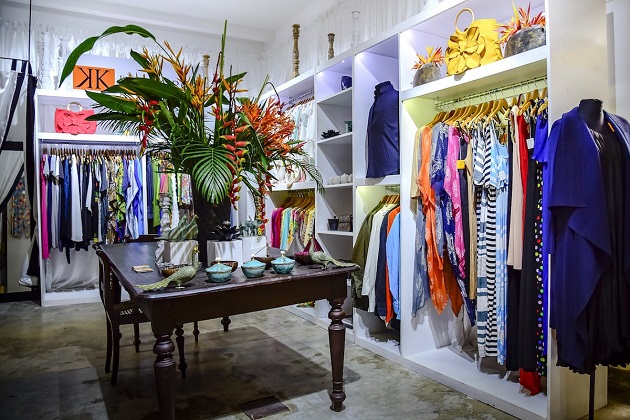In recent years, the global fashion industry has been shifting towards sustainability, with growing consumer demand for ethical and eco-friendly products. Sri Lanka, known for its rich cultural heritage and vibrant textile industry, is emerging as a frontrunner in sustainable fashion. Through innovative practices and a commitment to ethical standards, the country’s fashion industry is reshaping not only local lifestyles but also making a significant impact on global fashion trends. This article explores how Sri Lanka’s dedication to sustainable practices in its fashion industry is influencing contemporary lifestyles and changing the way people perceive and engage with fashion.
The Rise of Sustainable Fashion in Sri Lanka
The Fashion apparel from Sri Lanka industry has always been deeply rooted in traditional craftsmanship and attention to detail. However, over the past few decades, it has evolved into a sophisticated industry that caters to both local and international markets. One of the most remarkable shifts within this sector has been its focus on sustainability. Recognizing the environmental impacts of fast fashion, Sri Lankan fashion brands and manufacturers are now implementing eco-friendly production methods, ethical labor practices, and waste-reducing strategies. This movement is contributing to a new wave of consumer behavior in Sri Lanka, where buyers increasingly seek out sustainable and ethically produced fashion.
Sustainable Production Practices Shaping Lifestyles
Sri Lankan fashion brands are adopting innovative practices that minimize the environmental footprint of apparel production. These practices include using organic cotton, recycled materials, and natural dyes, as well as implementing water-saving techniques. Factories are investing in renewable energy sources, with several brands even achieving carbon-neutral certification.
This emphasis on sustainability is influencing consumer lifestyles in profound ways. For many Sri Lankans, there is now a greater sense of pride and awareness around wearing locally made, sustainable clothing. People are more conscious of the origin of their clothes and the environmental impact of their purchases. This awareness is creating a shift in lifestyle where individuals favor quality and durability over quantity, reflecting a broader global trend toward mindful consumption.
Ethical Labor Practices and Community Support
Another critical aspect of Sri Lanka’s fashion industry is its strong commitment to ethical labor practices. The industry provides employment to a significant portion of the population, particularly in rural areas. Many factories offer fair wages, safe working conditions, and opportunities for skill development, setting an example for ethical standards in the global fashion industry. By prioritizing worker welfare, Sri Lankan brands are not only producing high-quality apparel but also supporting communities and uplifting local livelihoods.
The impact of these ethical practices extends beyond just the factory workers; it resonates with consumers as well. People who wear Fashion apparel from Sri Lanka know that their purchases contribute to fair wages and improved living conditions for workers. This has led to a lifestyle where consumers feel a deeper connection with the items they own and a sense of social responsibility that aligns with their values.
The Global Reach of Sri Lankan Sustainable Fashion
Sri Lanka’s commitment to sustainable and ethical fashion is not just confined within its borders. Sri Lankan brands are gaining popularity on the international stage, with several companies exporting their sustainable clothing lines to Europe, North America, and other parts of Asia. This global reach has not only bolstered the country’s economy but also contributed to a greater appreciation of sustainable fashion worldwide.
Consumers abroad are drawn to the unique aesthetic of Sri Lankan fashion—one that combines traditional craftsmanship with modern designs. The appeal of Fashion apparel from Sri Lanka lies in its authenticity and its minimal impact on the environment, making it an attractive option for conscious consumers who wish to integrate sustainability into their lifestyle. As a result, Sri Lankan fashion is playing a role in influencing global lifestyle choices, encouraging people around the world to adopt a more sustainable approach to fashion.
The Influence of Traditional Sri Lankan Design on Modern Apparel
Traditional Sri Lankan design elements are also an integral part of the country’s fashion industry. From handloom fabrics to batik prints, Sri Lanka has a rich heritage of textile artistry that has been passed down through generations. By incorporating these traditional techniques into modern clothing, Sri Lankan brands are not only preserving their cultural heritage but also promoting a unique aesthetic that appeals to contemporary tastes.
This blending of the old and the new is particularly appealing to those who are looking to express individuality through their clothing. The influence of Sri Lankan fashion on lifestyle is evident in how people now appreciate and seek out unique, handcrafted pieces that tell a story. This trend is encouraging a lifestyle where fashion is seen as an art form, and consumers are more intentional about the pieces they add to their wardrobe.
Education and Awareness in Sustainable Fashion
The growth of Sri Lanka’s sustainable fashion industry has also sparked a rise in educational initiatives aimed at raising awareness about ethical fashion. Workshops, fashion shows, and collaborations with local artisans are increasingly common, helping to educate the public on the benefits of sustainable practices and the importance of supporting ethical brands. Schools and universities are beginning to include sustainable fashion in their curriculum, and local fashion events often showcase eco-friendly designs.
As a result, there is a growing understanding of the role that fashion plays in the environment and society. This knowledge is encouraging consumers to adopt a more holistic view of fashion as part of their lifestyle. People are more inclined to support brands that align with their values, which in turn promotes a lifestyle of responsibility and mindfulness.
Minimalism and Mindful Consumption
One of the key lifestyle trends associated with sustainable fashion in Sri Lanka is minimalism. With a greater emphasis on quality and durability, consumers are increasingly opting for fewer, more versatile pieces. This shift towards minimalism is part of a broader trend of mindful consumption, where people are more selective about the products they purchase.
The focus on sustainable fashion has encouraged consumers to value the longevity of their clothing, leading to a lifestyle where wardrobes are curated with care. This approach to fashion not only reduces waste but also promotes a sense of purpose and satisfaction in owning clothing that aligns with personal values. Minimalism and mindful consumption are becoming defining characteristics of the Fashion apparel from Sri Lanka lifestyle.
The Future of Sri Lankan Sustainable Fashion
As the demand for sustainable and ethical fashion continues to grow, Sri Lanka’s fashion industry is well-positioned to lead the way. With a strong foundation in traditional craftsmanship, a commitment to ethical practices, and a global perspective, the industry is set to expand its influence on both local and international lifestyles.
In the future, we can expect to see Sri Lankan brands continue to innovate, offering products that cater to the needs of eco-conscious consumers. As more people embrace sustainable fashion, the Fashion apparel from Sri Lanka industry will likely play an even larger role in shaping contemporary lifestyles, inspiring individuals to prioritize sustainability in all aspects of their lives.
Conclusion
Sri Lanka’s fashion industry is not only making strides in sustainable practices but is also helping to shape a more conscious and intentional approach to fashion in the modern world. Through ethical labor practices, eco-friendly production methods, and a respect for cultural heritage, Sri Lankan fashion is inspiring consumers to make lifestyle choices that are in harmony with the environment and society. This dedication to sustainability is creating a ripple effect, encouraging people to adopt a mindful lifestyle that values quality, ethics, and responsibility. As the global fashion landscape evolves, Fashion apparel from Sri Lanka stands as a shining example of how an industry can thrive while respecting both people and the planet.




